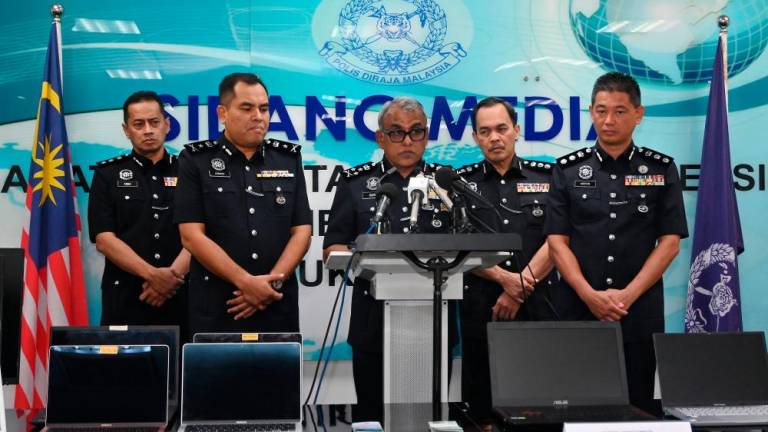TWO years ago an elderly uncle of mine was unceremoniously dumped from the office job he had been holding for some 35 years.
The family that owned the small business had decided to computerise much of the operations, including the accounting and filing systems.
I remember hearing him lament of how he and other veteran colleagues at the company had become redundant.
Accustomed to meticulously drafting things by pen on ledgers for decades, they were unable to cope with the sudden shift to a computer keyboard, screen and unfamiliar software.
They all left with sad feelings. The loyalty and time they had served at the firm apparently meant little to their employers.
Like this uncle, thousands of people have been losing their jobs over the past few years due to an employment crisis brought about by the digital era.
Despite warnings from various authorities, it is a problem that has been largely neglected in society.
Tragically, it is now even more forgotten amid the worsening economic scenario with lay-offs brought about by the global Covid-19 pandemic.
The World Economic Forum (WEF) had warned way back in 2017 that technological changes were seriously overwhelming entire societies, not just older generations.
Its Global Risks Report 2017 cautioned in a section on social and political challenges that as the so-called “Fourth Industrial Revolution” (4IR) accelerated, many individuals faced a potential crisis.
Those at risk included lower-skilled workers more easily displaced by automation, part-time and self-employed workers without access to employer-sponsored protections, and older workers and retirees without sufficient savings or pensions.
“A failure to take action risks both the deterioration of government finances and the exacerbation of social unrest, especially at this time of slow economic growth and widening inequality,” the report said.
Locally, the Malaysian Employers Federation (MEF) had also cautioned that automation would continue to be a factor for job losses as more and more companies turned to automation, usage of robotics and information technology.
Two of the notable industries to be affected were banking and insurance. Both have seen substantial job losses.
It is no wonder that an International Labour Organisation report had categorised half the jobs in Malaysia as being at high risk of being displaced by technology in the next 20 years.
Understandably, the shift to IT infrastructure by many industries is in tandem with the rapidly transforming dynamics of digitalisation.
Companies want to have greater ease of operations and less salaries to pay. They see trimming of manpower as a necessary step to remain competitive.
However, most do not take the effort to assist or support workers who are affected with retraining and upskilling.
There have been too few voices on this matter. Those that are vocal have been largely neglected.
The Consumers Association of Penang (CAP) has been warning and calling for measures to support the labour force for years, insisting that a major motive for companies to get rid of workers is to maximise profits.
The late SM Mohamed Idris, the then president of CAP, had in 2018 derided this situation as creating corporations “without a human face”.
“It is about stretching profits before the interests of people and workers,” he had said, calling on all parties to ensure protection and preservation of our traditional resources, both cultural and physical, before it is too late.
It is incumbent on employers to undertake all possible measures to retain old staff members who would otherwise be victimised by such onslaught of the Fourth Industrial Revolution, he emphasised.
Companies should provide viable alternatives such as in retraining workers and letting them work three days a week instead, he said.
“We commit a grave irreversible error by getting carried away in promoting the surge of 4IR, to the extent of harming our own people’s sustenance and careers, and losing the very living cultural and socio-economic assets of our society.”
Himanshu is a veteran journalist and theatre practitioner. Comments: letters@thesundaily.com














